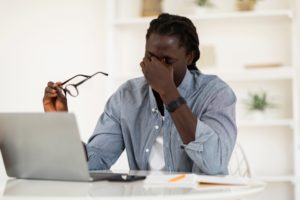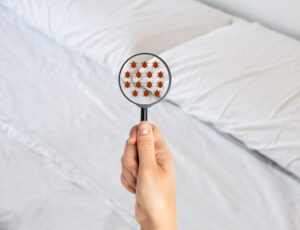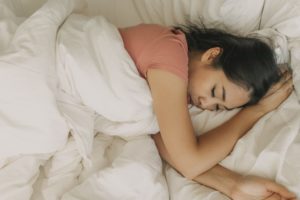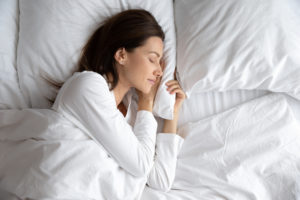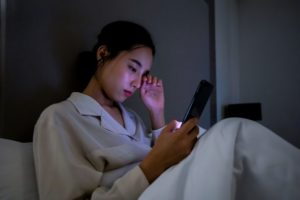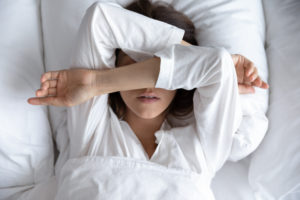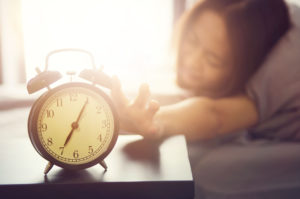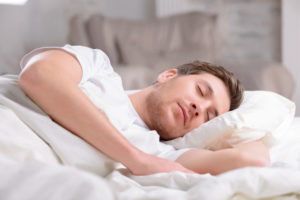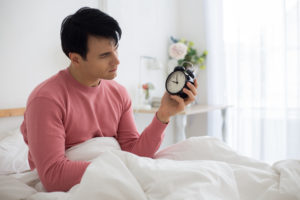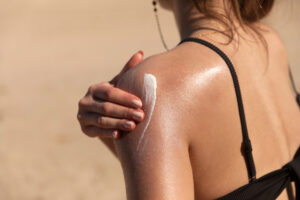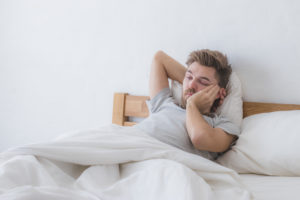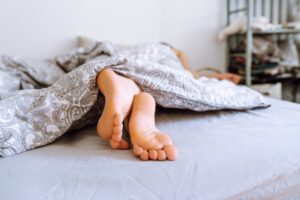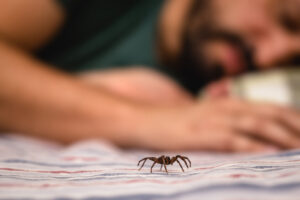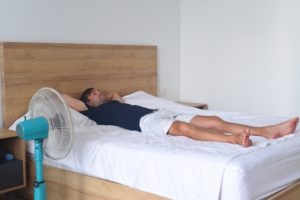Why Does Coffee Make You Tired?
Coffee drinking is widespread, especially in the United States. An estimated 75% of American adults drink coffee, and nearly 50% do so on a daily basis. Since coffee contains caffeine and other compounds that increase alertness and improve mood, many people use coffee as part of their morning routines to help them feel awake and ready for the day.
Even though coffee is a stimulant, some people find drinking it does not give them the outcome they desire. We discuss the potential reasons coffee might seem to make you feel sleepy rather than alert, as well as what you can do to counteract these effects.
Sleep Deprivation
More than one-third of Americans are sleep-deprived and not receiving the recommended minimum of seven hours of sleep per night. Although coffee can provide a quick pick-me-up, it is not an adequate substitute for sleep. Sleep deprivation can reduce alertness , slow down response times, and negatively affect thinking.
Drinking more coffee in an effort to overcome tiredness might backfire. Ingesting too much caffeine can negatively impact sleep , making you sleepy the next day. As a result, turning to coffee to fix the effects of sleep deprivation can create a negative cycle. Because you feel more tired, you drink more coffee, but that coffee disrupts your sleep, leading to more tiredness in the long run.
Are You Getting Enough Deep Sleep?
A variety of issues can cause degrade your sleep quality. Answer three questions to understand if it’s a concern you should worry about.
Caffeine Tolerance
Rather than making you tired, it is possible that coffee simply is not making you as alert as it once did.
Initially, consuming caffeine can improve your mood and reaction times , as well as your physical performance . However, similar to the way people can develop a tolerance for alcohol, those who consume caffeine regularly develop a tolerance to it. As a result, consuming the same amount of caffeine will not produce the same positive effects over time, and consuming more coffee to try to recuperate its positive effects could have negative effects for your sleep.
Additionally, regular caffeine use over just three days is enough to spark withdrawal symptoms when you stop consuming it, including an increased feeling of tiredness.
Dehydration
Coffee is considered a diuretic , which means it can increase your need to urinate and lead to fluid loss. If these bathroom trips wake you up throughout the night, you might feel more tired the next day. Additionally, mild dehydration itself can cause you to experience fatigue . Mild dehydration can also decrease cognitive performance, impair memory, and increase anxiety and tension.
Coffee may be more likely to affect hydration for people who are not regular coffee drinkers , and it may have little to no effect until a certain level of caffeine is reached.
Blood Sugar Changes
Drinking coffee in the morning may contribute to insulin resistance and negatively impact your body’s ability to tolerate glucose . This makes you more sensitive to sugar or carbohydrates found in your drink or breakfast, and it can cause a temporary surge in blood sugar. Most common in people with diabetes or prediabetes, high blood sugar levels are associated with increased feelings of fatigue , particularly in women.
Even if your blood sugar does not reach clinically high levels, you might feel increased tiredness due to low blood sugar after your blood sugar levels decrease. In the hours after consuming sugar, blood sugar levels peak and then dip, and this falling blood sugar may affect your energy levels.
If you believe you have diabetes or other blood sugar problems, make an appointment with your doctor.
Adenosine Levels
Released in larger quantities when we are sleep-deprived , adenosine is a key chemical that helps bring on sleepiness . Coffee promotes alertness and reduces tiredness by blocking adenosine receptors and preventing the chemical from exerting its sleep-promoting effects. However, research suggests that the body compensates for this effect by increasing sensitivity to adenosine. Once the effects of the coffee wear off, the resulting surge can cause sleepiness and muscle fatigue .
Caffeine Metabolism
Not everyone metabolizes caffeine at the same rate. If you metabolize caffeine slowly, it might not make you feel alert as quickly as it does for other people. Conversely, if you metabolize caffeine quickly, it might not impact you as much or it might wear off more quickly, leading to feelings of sleepiness sooner.
Multiple factors impact how quickly a person metabolizes caffeine. Smoking cigarettes speeds up caffeine metabolism. By contrast, conditions such as pregnancy or liver disease might slow down caffeine metabolism.
Genetics
Although more research is needed, researchers have found that genetics impact how an individual responds to caffeine. Having specific genes could make you more sensitive to caffeine’s negative effects, such as anxiety or sleep disruption. If ingesting caffeine negatively impacts your sleep, you might experience increased daytime tiredness as a result.

How to Maximize the Benefits of Coffee
There are multiple actions you can take to help you maximize the benefits of coffee while minimizing its potential negative effects.
Get Enough Sleep
Although coffee increases alertness, it has limited effects for higher cognitive processes, and it cannot mask underlying sleepiness forever. If you are feeling tired despite drinking coffee, you might be sleep-deprived. Consider sleeping for longer, or examining your sleep quality to see if you might be experiencing unrefreshing sleep despite spending a long time in bed.
Drink Coffee Strategically
Studies show that drinking coffee within the six hours before bed can disrupt sleep, so consider limiting coffee to the morning and favoring sleep-promoting foods at night. The U.S. Food & Drug Administration recommends consuming no more than 400 milligrams of caffeine per day — the amount found in about four cups of coffee . Different people have different sensitivity levels to caffeine, so if you notice that caffeine is negatively impacting you, it may help to reduce the amount you consume.
Cut Back on Added Sugar
Be mindful of what you eat with your morning coffee and any sugar or sweetener you add to it. In many parts of the world, drinks like coffee have become hidden sources of added sugar in a person’s diet. For people with diabetes, consuming sugar can prompt fatigue. Additionally, caffeine consumption can negatively impact the body’s ability to properly manage sugar, potentially increasing any resulting fatigue.
Stay Hydrated
To combat the potential dehydration that often accompanies higher doses of caffeine, be sure to drink plenty of water. This is especially relevant if you do not regularly consume coffee, as you may be more sensitive to its diuretic effects.

Still have questions? Ask our community!
Join our Sleep Care Community — a trusted hub of sleep health professionals, product specialists, and people just like you. Whether you need expert sleep advice for your insomnia or you’re searching for the perfect mattress, we’ve got you covered. Get personalized guidance from the experts who know sleep best.
References
21 Sources
-
Loftfield, E., Freedman, N. D., Dodd, K. W., Vogtmann, E., Xiao, Q., Sinha, R., & Graubard, B. I. (2016). Coffee drinking is widespread in the United States, but usual intake varies by key demographic and lifestyle factors. The Journal of Nutrition, 146(9), 1762–1768.
https://pubmed.ncbi.nlm.nih.gov/27489008/ -
Liu, Y., Wheaton, A. G., Chapman, D. P., Cunningham, T. J., Lu, H., & Croft, J. B. (2016). Prevalence of healthy sleep duration among adults–United States, 2014. MMWR. Morbidity and mortality weekly report, 65(6), 137–141.
https://pubmed.ncbi.nlm.nih.gov/26890214/ -
Killgore, W. D. S. (2010). Effects of sleep deprivation on cognition. Progress in Brain Research, 185, 105–129.
https://pubmed.ncbi.nlm.nih.gov/21075236/ -
Snel, J., & Lorist, M. M. (2011). Effects of caffeine on sleep and cognition. Progress in Brain Research, 190, 105–117.
https://pubmed.ncbi.nlm.nih.gov/21531247/ -
Addicott, M. A., & Laurienti, P. J. (2009). A comparison of the effects of caffeine following abstinence and normal caffeine use. Psychopharmacology (Berlin), 207(3), 423–431.
https://pubmed.ncbi.nlm.nih.gov/19777214/ -
Lara, B., Ruiz-Moreno, C., Salinero, J. J., & Del Coso, J. (2019). Time course of tolerance to the performance benefits of caffeine. PLoS One, 14(1), e0210275.
https://pubmed.ncbi.nlm.nih.gov/30673725/ -
Seal, A. D., Bardis, C. N., Gavrieli, A., Grigorakis, P., Adams, J. D., Arnaoutis, G., Yannakoulia, M., & Kavouras, S. A. (2017). Coffee with high but not low caffeine content augments fluid and electrolyte excretion at rest. Frontiers in Nutrition, 4, 40.
https://pubmed.ncbi.nlm.nih.gov/28868290/ -
Ganio. M. S., Armstrong, L. E., Casa, D. J., McDermott, B. P., Lee, E. C., Yamamoto, L. M., Marzano, S., Lopez, R. M., Jimenez, L., Le Bellego, L., Chevillotte, E., & Lieberman, H. R. (2011). Mild dehydration impairs cognitive performance and mood of men. The British Journal of Nutrition, 106(10), 1535–1543.
https://pubmed.ncbi.nlm.nih.gov/21736786/ -
Maughan, R. J., & Griffin, J. (2003). Caffeine ingestion and fluid balance: A review. Journal of Human Nutrition and Dietetics: The Official Journal of the British Dietetic Association, 16(6), 411–420.
https://pubmed.ncbi.nlm.nih.gov/19774754/ -
Smith, H. A., Hengist, A., Thomas, J., Walhin, J-P., Heath, P., Perkin, O., Chen, Y-C., Gonzalez, J. T., & Betts, J. A. (2020). Glucose control upon waking is unaffected by hourly sleep fragmentation during the night, but is impaired by morning caffeinated coffee. The British Journal of Nutrition, 124(10), 1114–1120.
https://pubmed.ncbi.nlm.nih.gov/32475359/ -
Fritschi, C., Park, C., Quinn, L., & Collins, E. G. (2020). Real-time associations between glucose levels and fatigue in type 2 diabetes: sex and time effects. Biological Research for Nursing, 22(2), 197–204.
https://pubmed.ncbi.nlm.nih.gov/32008368/ -
Anderwald, C., Gastaldelli, A., Tura, A., Krebs, M., Promintzer-Schifferl, M., Kautzky-Willer, A., Stadler, M., DeFronzo, R. A., Pacini, G., & Bischof, M. G. (2011). Mechanism and effects of glucose absorption during an oral glucose tolerance test among females and males. Journal of Clinical Endocrinology and Metabolism, 96(2), 515–524.
https://pubmed.ncbi.nlm.nih.gov/21147888/ -
Doty, T. J., So, C. J., Bergman, E. M., Trach, S. K., Ratcliffe, R. H., Yarnell, A. M., Capaldi, V. F., 2nd, Moon, J. E., Balkin, T. J., & Quartana, P. J. (2017). Limited efficacy of caffeine and recovery costs during and following 5 days of chronic sleep restriction. Sleep, 40(12), 10.1093/sleep/zsx171.
https://pubmed.ncbi.nlm.nih.gov/29029309/ -
Bjorness, T. E., & Greene, R. W. (2009). Adenosine and sleep. Current Neuropharmacology, 7(3), 238–245.
https://pubmed.ncbi.nlm.nih.gov/20190965/ -
Urry, E., & Landolt, H-P. (2015). Adenosine, caffeine, and performance: From cognitive neuroscience of sleep to sleep pharmacogenetics. Current Topics in Behavioral Neuroscience, 25, 331–366.
https://pubmed.ncbi.nlm.nih.gov/24549722/ -
Butt, M. S., & Sultan, M. T. (2011). Coffee and its consumption: benefits and risks. Critical reviews in Food Science and Nutrition, 51(4), 363–373.
https://pubmed.ncbi.nlm.nih.gov/21432699/ -
Evans, J., Richards, J. R., & Battisti, A. S. (2020). Caffeine. In StatPearls. StatPearls Publishing.
https://pubmed.ncbi.nlm.nih.gov/30137774/ -
Yang, A., Palmer, A. A., & de Wit, H. (2014). Genetics of caffeine consumption and responses to caffeine. Psychopharmacology (Berlin), 211(3), 245–257.
https://pubmed.ncbi.nlm.nih.gov/20532872/ -
Drake, C., Roehrs, T., Shambroom, J., & Roth, T. (2013). Caffeine effects on sleep taken 0, 3, or 6 hours before going to bed. Journal of Clinical Sleep Medicine: Official Publication of the American Academy of Sleep Medicine, 9(11), 1195–1200.
https://pubmed.ncbi.nlm.nih.gov/24235903/ -
U.S. Food & Drug Administration. (2018, December 12). Spilling the beans: How much caffeine is too much?, Retrieved July 9, 2021, from
https://www.fda.gov/consumers/consumer-updates/spilling-beans-how-much-caffeine-too-much -
Reyes, C. M., & Cornelis, M. C. (2018). Caffeine in the diet: Country-level consumption and guidelines. Nutrients, 10(11), 1772.
https://pubmed.ncbi.nlm.nih.gov/30445721/




